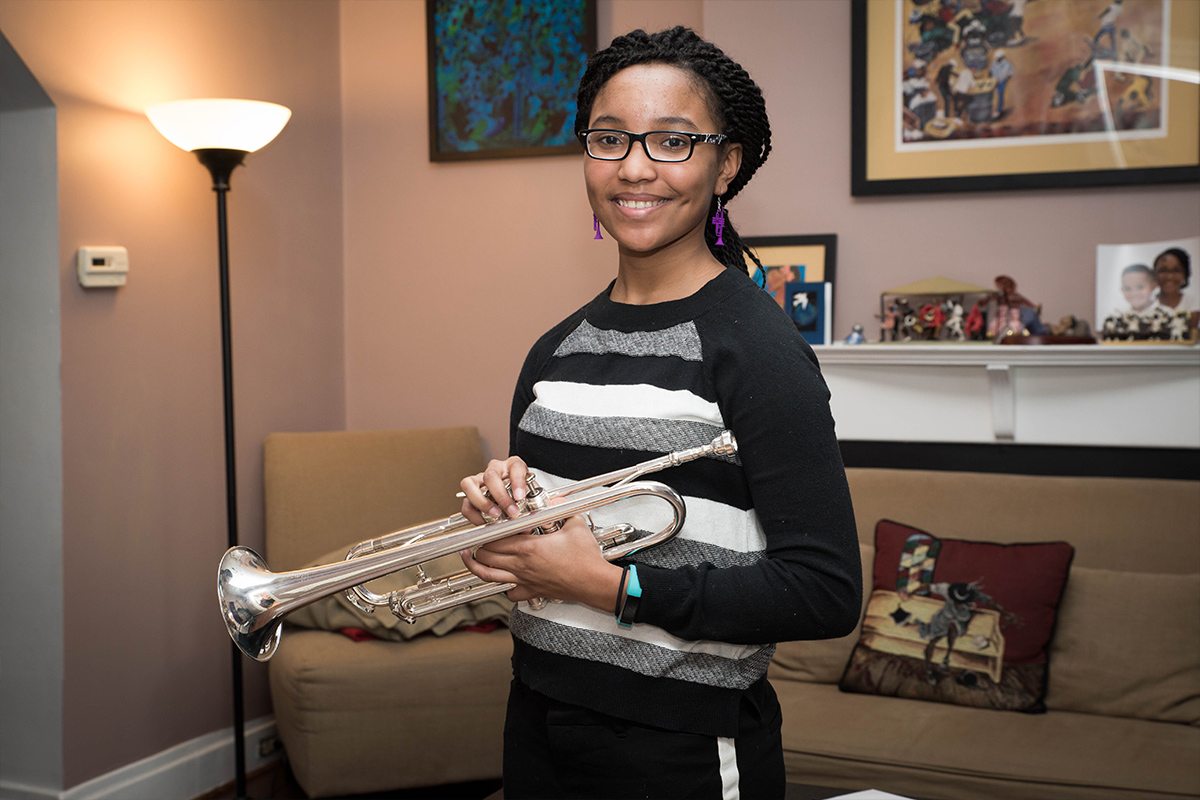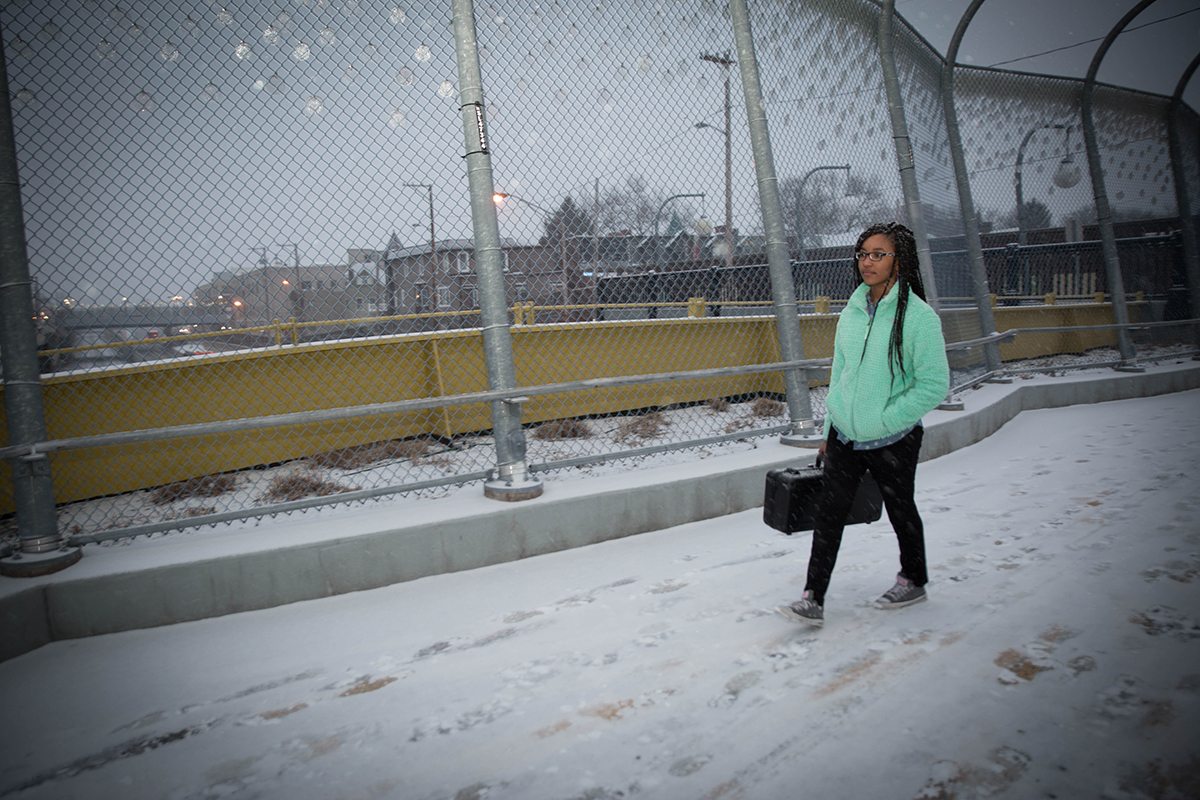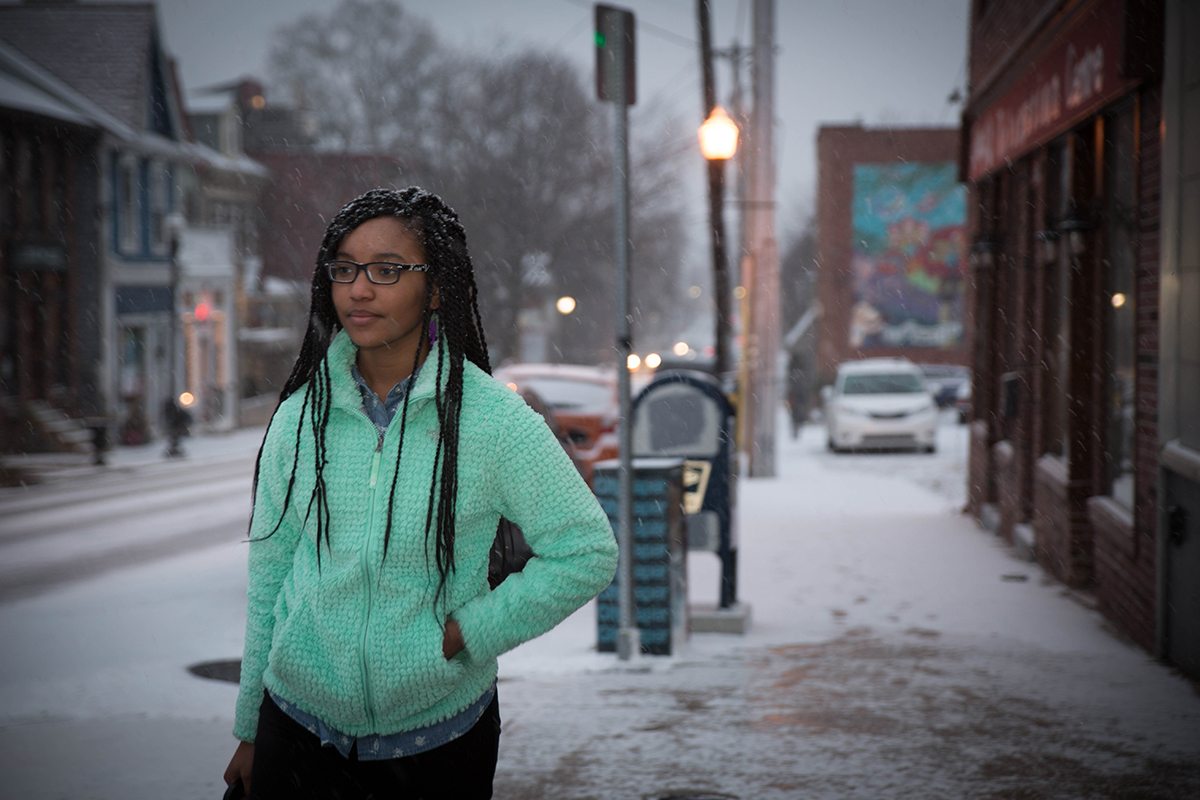I’m sitting quietly on the gymnasium floor next to my friend. All of us, kindergarten through eighth graders, had just been ushered out of our classrooms at Sacred Heart Elementary for an emergency evacuation drill. Our gym is in a different building than our regular classes. Once the students were settled, they all started talking.
My friend turns to me and starts telling me how another kid told him he was “deaf as a bat” earlier that day. He hadn’t heard that before and thought it was pretty funny. I usually try not to get into too much trouble, and I know how upset teachers can get when we talk during emergency drills. Then again, everyone else around me was talking, and nobody has corrected them. I decided that it was OK to talk, as long as I wasn’t too loud. I turn to my friend and continue the conversation, laughing with him.
After a few minutes, a teacher from across the gym notices us — or me specifically. She is heading toward us across the gym, looking at me the entire time. I don’t think she even knows my name.
She approaches my homeroom teacher, who is standing right in front of me and heard me talking. She asks if she can talk to me. Looking me in the eye, she lectures me on how I’m an eighth grader and should know better than to talk during a drill. The little kids whom she teaches look up to me and will imitate what I do. “This boy next to you is trying to politely ignore you, but you keep talking to him,” she says.
I think about explaining, then I remember how teachers absolutely hate being corrected, even if you’re right. What do I do? I take it.

Amariah Woodson, 14, is an eighth grader at Sacred Heart Elementary School. She has been playing the trumpet for four years. (Photo by Njaimeh Njie/PublicSource)
I sit there silently, trying to hide my disbelief. It’s embarrassing, that I was the only one who got caught, but I definitely can’t show it. Middle school is cruel and unforgiving, especially if a teacher makes you look bad. I barely listened to a word she said. It’s the same speech as always. When she finishes, I give a slight nod. When she had crossed back to her side of the gym, my friend leaned over and whispered, “Thanks.” I nod again, still watching the teacher who scolded me.
It’s the end of the school day now. Students are being dismissed to catch their buses or go to after-school activities, but the rest of the kids who walk home – including myself – are still being corralled in the gym.
Coincidentally, I am put next to another one of my friends. He had seen the teacher reprimand me and asked what happened. I said that she had seen me talking. “But everyone was talking,” he replied. I shrugged. I turn to watch the last of the students taking a bus home leave the building. Unfortunately, this meant that my head was turned toward my friend.The teacher crosses the gym again and warns me what a third visit from her would mean… a demerit – our school’s way of measuring the amount of disruptions a student causes – or even a call home.
It wasn’t until I got home and discussed it with my parents that I found that I could explain what happened by using words like “racism.” She had targeted the only black student in the area and knew that I couldn’t defend myself. Sacred Heart has very little diversity. The eighth grade has the most black students of any grade, and there are only seven of us (including myself) out of about 40 students. Nearly everyone else is white. My closest friend — another student of color — told me that this particular teacher has given her a difficult time as well.
It wasn’t until I got home and discussed it with my parents that I found that I could explain what happened by using words like 'racism.'
If I had defended myself at school, I would have looked ridiculous. The teachers would have thought three things:
1. I’m just a kid who doesn’t want to take responsibility for my actions.
2. I shouldn’t talk back to a teacher and have no right to call her actions rude or unfair.
3. There’s no way to prove that the teacher’s actions were, in fact, “racist.”
If I were an adult, the first two problems would be minor or nonexistent. The third statement, however, is a serious problem, especially in court. How does one tell if someone’s actions are fueled by racism? Do you ask them? People swear to “tell the truth, the whole truth, and nothing but the truth” all the time, but that doesn’t mean that they will. People have been brainwashed to believe that treating people a certain way because of the color of their skin is OK, and they might not realize how strongly they have been influenced. It’s become second nature.
If we can prove that a person’s acts are racist, then maybe we can stop it. Maybe we can get people to care about black people. Hit them with some “Black Lives Matter.” But racism was and still is socially acceptable to most, whether they realize it or not. Nothing will end it immediately. It’s going to be a long and painful struggle. Some say that it’s already over or at least getting better. I prefer the “one step forward, two steps back” analogy.

"If we can prove that a person’s acts are racist, then maybe we can stop it. Maybe we can get people to care about black people," Amariah Woodson wrote. (Photo by Njaimeh Njie/PublicSource)
Another problem is a lack of understanding. Then again, a person can’t be expected to understand something that has never and will never happen to them. “You’re being ‘reverse racist.’” If there’s one term that doesn’t make any sense, it’s “reverse racism.” How can we, the oppressed, show racism toward you, the oppressors? You have not experienced what we have, and I would appreciate if you didn’t pretend that you did just to appear as a victim. Your ancestors were not stolen from their country, treated worse than animals, and sold and traded like property. They weren’t promised freedom just to have it ripped from them yet again. You aren’t treated worse than everyone else because of something that you have no control over, let alone did not ask for. The point is, you can’t understand how this feels.
Despite the fact that I know that I’m not ignorant or inferior, that moment affected me. I felt inadequate, and it took days for the feeling to pass. It even ruined PE for a while. Every time I walked through the wide double doors of my middle school gym, the feeling of inadequacy returned. Is it fair that I, a 14-year-old, have to learn how to shrug that off?
Amariah Woodson is an eighth grader at Sacred Heart Elementary in Shadyside. She has been playing the trumpet for four years and also enjoys creating hand-drawn as well as digital art. Amariah is an avid reader and loves to write short stories. Social studies and history interest her the most at school, and she enjoys talking about African-American history and culture, as well as racism and modern forms of oppression.
